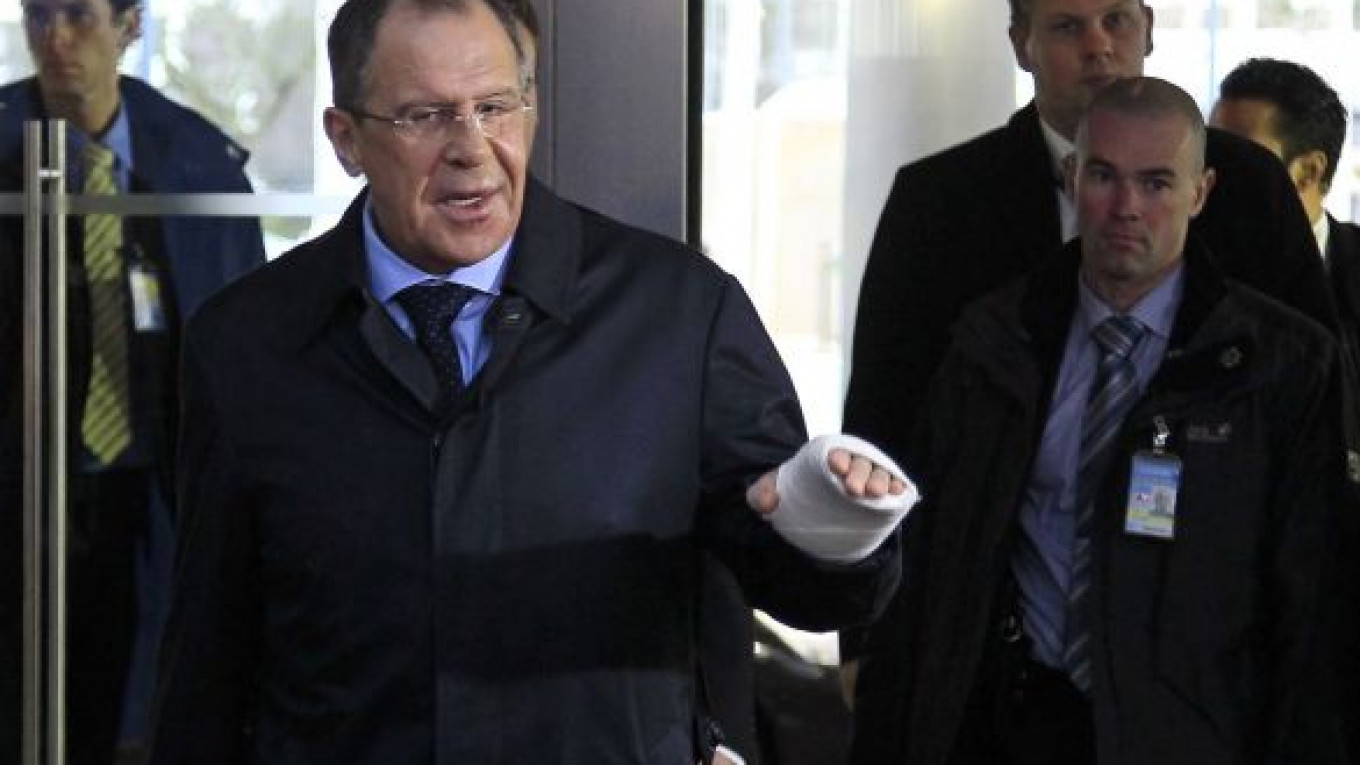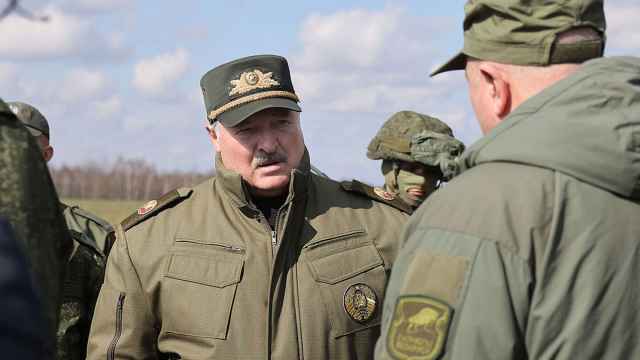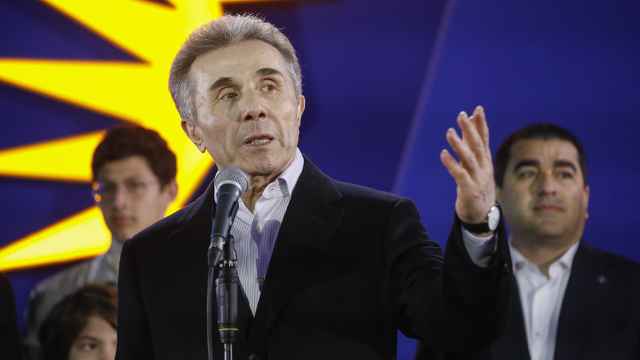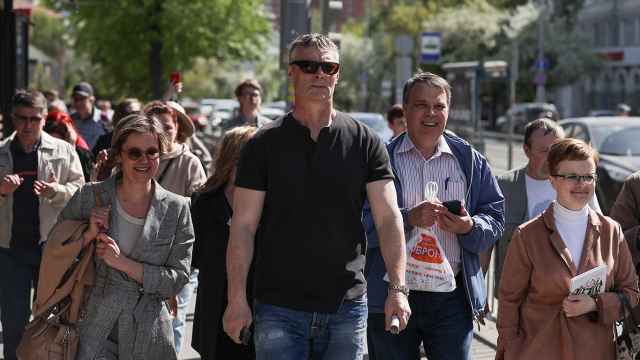BRUSSELS — Foreign Minister Sergei Lavrov signaled on Tuesday that Moscow was ready to improve cooperation with NATO by offering a slightly softened stance on Syria.
Speaking to reporters after a session of the NATO-Russia Council in Brussels, Lavrov said Moscow was ready to accept — albeit grudgingly — the alliance's plan to station Patriot surface-to-air missiles along the Turkish border with Syria.
"We do not protest against this and do not hinder Turkey's right to take any means of self-defense," he said, adding that Russia merely had political concerns that the conflict was being militarized.
"Any such deployment creates the risk that these arms will be used," he said.
His words echoed statements on Monday by President Vladimir Putin, who said after talks with the Turkish leadership in Istanbul that any military buildup along the border "won't ease the situation but exacerbate it."
NATO Secretary-General Anders Fogh Rasmussen played down those fears by stressing that the missiles were purely defensive and intended to protect the local population on Turkish territory.
"They are an effective deterrent which we hope will de-escalate the situation along the [Syrian] border," he told reporters ahead of the Tuesday meeting.
Lavrov was speaking just before NATO foreign ministers made a decision to deploy the missiles. However, the deployment is unlikely to happen before next year because it needs parliamentary approval in Germany and the Netherlands the only two NATO members apart from the United States that possess modern Patriot missiles.
Putin has warned that Syria could become another Libya, where NATO used military force to topple the local leadership. The White House has suggested that the West would be forced to respond if Syria used chemical weapons.
However, Lavrov said that Moscow had no evidence of such plans and that NATO had assured him there could be no military solution to the conflict.
Moscow has staunchly defended Syrian President Bashir Assad during the almost two years of bloody conflict in the Middle Eastern country, a key ally since Soviet times.
But the Kremlin has shifted its position lately by hosting talks with Syrian opposition representatives and stressing that Russia is not automatically supporting the Assad leadership. Putin reiterated this on Monday by saying Russia is no "absolute defender of the Syrian Regime" and would continue to seek a peaceful solution.
Lavrov also made positive remarks about Moscow's cooperation with NATO. "We agree that our practical cooperation on a range of issues is developing very positively and is showing real results," he said.
Rasmussen said the alliance was eager to re-energize the relationship after a lull in recent months caused by the presidential elections in both Russia and the United States.
As part of that effort, he announced on Monday that NATO was offering a new cooperation program to destroy and recycle some of the country's vast ammunition heaps. The offer was not mentioned in public on Tuesday, but a senior NATO official said it had been discussed during the NATO-Russia council.
The official, who spoke on condition of anonymity, also said both sides had agreed to take a fresh look at the planned NATO missile defense system in Europe, which had been firmly opposed by Moscow.
Lavrov said that while Moscow and Brussels still had "directly opposing" views on the issue, both sides agreed to start fresh consultations. "For us it is important to find out whether the invitation to a joint analysis means something new," he said.
The foreign minister also warned that if the United States went ahead with plans to impose sanctions against state arms exporter Rosoboronexport, such a move would hurt ties. He added, however, that he hoped the White House would veto such legislation, which is currently being discussed in the U.S. Congress.
Tuesday's talks were the first high-level meeting since Putin's return to the Kremlin in May.
The Foreign Ministry on Tuesday denied reports that Lavrov had broken his arm while on his official visit to Turkey. "We're talking about a slight sports' injury, which had no effect on the schedule of the minister," a ministry representative told RIA-Novosti.
Turkish media reported that Lavrov was rushed to Istanbul's Taksim hospital at 6 p.m. Monday after falling in his hotel. Doctors diagnosed a fractured wrist, Turkey's NTV news channel reported.
Related articles:
A Message from The Moscow Times:
Dear readers,
We are facing unprecedented challenges. Russia's Prosecutor General's Office has designated The Moscow Times as an "undesirable" organization, criminalizing our work and putting our staff at risk of prosecution. This follows our earlier unjust labeling as a "foreign agent."
These actions are direct attempts to silence independent journalism in Russia. The authorities claim our work "discredits the decisions of the Russian leadership." We see things differently: we strive to provide accurate, unbiased reporting on Russia.
We, the journalists of The Moscow Times, refuse to be silenced. But to continue our work, we need your help.
Your support, no matter how small, makes a world of difference. If you can, please support us monthly starting from just $2. It's quick to set up, and every contribution makes a significant impact.
By supporting The Moscow Times, you're defending open, independent journalism in the face of repression. Thank you for standing with us.
Remind me later.







